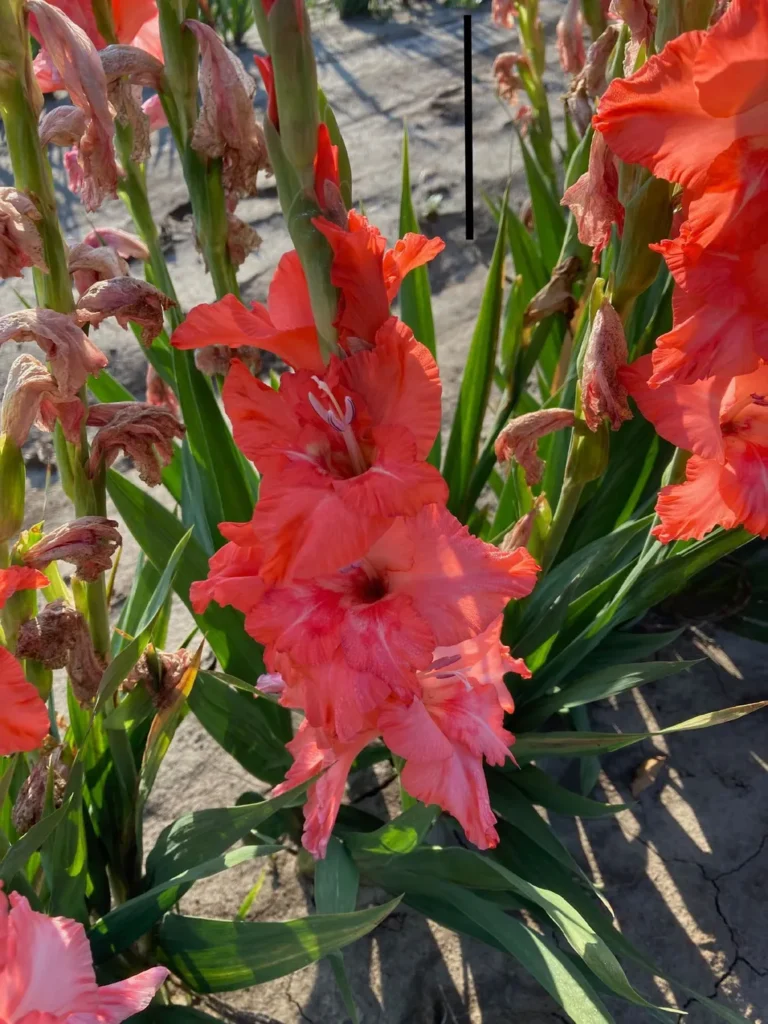In the heart of India’s agricultural research landscape, a groundbreaking study has emerged, offering a beacon of hope for the cut flower industry grappling with the challenges of saline soil. Published in *The Indian Journal of Agricultural Sciences*, the research led by Ediga Amala from the ICAR-Indian Agricultural Research Institute, New Delhi, delves into the resilience of gladiolus (Gladiolus grandiflorus) genotypes under salinity stress, a pressing issue affecting crop productivity.
Salinity is a silent saboteur, stealthily undermining the growth and yield of crops, particularly in commercial ventures like gladiolus cultivation. The study, conducted over two years, evaluated ten gladiolus genotypes under varying salinity levels, revealing a stark contrast in their responses. “The differences were striking,” Amala noted, highlighting the superior performance of genotypes Little Fawn and Yellow Stone, which maintained higher relative water content even under severe stress.
The research meticulously measured growth parameters, physiological, and biochemical responses, painting a comprehensive picture of the genotypes’ resilience. The findings were compelling: under the highest salinity stress level (90 mM NaCl), plant height, leaf area, and the number of corms were significantly reduced. However, Little Fawn and Yellow Stone stood out, exhibiting remarkable tolerance. “These genotypes not only survived but thrived, offering a promising avenue for sustainable cultivation in salt-affected areas,” Amala explained.
The study also shed light on the oxidative stress induced by salinity, with tolerant genotypes showing notably lower electrolyte leakage rates and malondialdehyde content. Principal component analysis further reinforced the correlation between growth traits and stress biomarkers, underscoring the potential of these resilient genotypes.
The commercial implications of this research are substantial. With salt-affected areas expanding globally, the ability to cultivate salt-tolerant gladiolus genotypes could revolutionize the flower industry. “This isn’t just about scientific discovery; it’s about empowering farmers and industry stakeholders with tools to combat a pressing agricultural challenge,” Amala emphasized.
The research, published in *The Indian Journal of Agricultural Sciences* and led by Ediga Amala from the ICAR-Indian Agricultural Research Institute, New Delhi, opens new horizons for the agricultural sector. It paves the way for developing salt-tolerant gladiolus varieties, ensuring sustainable cultivation and bolstering the flower industry’s resilience in the face of salinity stress. As we look to the future, this study serves as a testament to the power of scientific innovation in addressing real-world agricultural challenges.

